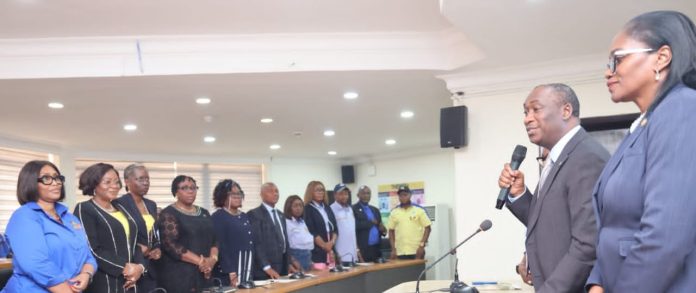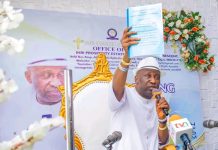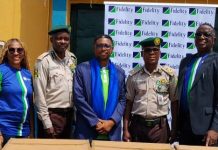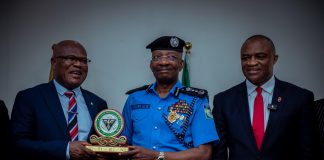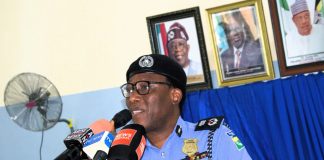…INAUGUARATES HCD 2.0 STATE CORE WORKING GROUP
Lagos State Deputy Governor, Dr. Kadri Obafemi Hamzat has stressed the importance of collection, collation, and dissemination of accurate data for the effective development of the state and nation as a whole.
Hamzat stated this today at the “Reconstitution of Human Capital Development 2.0 Lagos State Core Working Group,” held at the Office of the Deputy Governor, Round House, Alausa. He emphasized that it is important for Ministries, Departments, and Agencies (MDAs) within the state and country to maintain accurate, readable, and transferable data to positively project the country globally.
He said the initiative aims to enhance the state’s global visibility and promote informed decision-making. The Deputy Governor noted that by adopting the approach, Lagos State can ensure seamless data sharing, facilitate collaboration, and drive progress in various sectors, citing that Nigeria was rated by the World Bank as one of the Lowest in human capital development in the world because the nation lacks data.
Dr. Hamzat added that data keeping is a significant step towards harnessing the power of data-driven governance to propel the state’s development and reputation on the global stage.
“Data is the bedrock of any society. What is important is that ministries must have data in a format that is readable and transferable, so that we can give them out and globally they can see what we are doing in all sectors. Because it seems to me that we are not projecting our data well, and data is what defines us,” he said.
Speaking further, Hamzat stated that when they measure Nigeria, based on its data, what they measure is Lagos and Kano, noting that the moment they take data from Lagos and Kano, and sometimes Rivers, they conclude that Nigeria is bad and these are the things they are looking for.
He stressed further that it is necessary for Nigeria to find a way to harness its data as they underscore the country with the data available, adding that “in Nigeria, we don’t get information out the right way, and we are losing resources as a state if we don’t have this data.”
The Deputy Governor encouraged the Lagos State Bureau of Statistics to interact more with ministries within the state to collect and collate accurate data, stressing that the bureau is very important and germane to the realization of the Greater Lagos agenda and development project of the Sanwo-Olu/Hamzat administration.
In her remarks, Special Adviser to Lagos State Governor on Sustainable Development Goals, Dr. Oreoluwa Finnih stated that the gathering marks a defining chapter in the government’s unwavering commitment to the socio-economic transformation of the state through strategic, data-driven, and people-centered development initiatives.
Dr. Finnih noted that the evolution of Human Capital Development from its initial phase to HCD 2.0 is not merely a progression in nomenclature, it represents a paradigm shift in how to approach human capital development., adding that “The 2.0 extension signifies a deeper integration of technology, data-driven policy-making, and an inclusive governance framework that places people at the center of development. This refined strategy is aligned with global best practices and the broader vision of achieving the SDGs by 2030.”
The Special Adviser highlighted that the heart of HCD 2.0 lies in a holistic and structured approach, designed to fortify three critical sectors that underpin human capital development; Equitable and Modern Healthcare, Inclusive and Functional Education System, and Promotion of Financial Inclusion.
She therefore urged members of the reconstituted HCD Core Working Group to share a vision of progress, inclusivity, and sustainable impact. “Expectations are high, but so are our capabilities. Let us work assiduously to build a Lagos where citizens have access to quality healthcare, functional education, and financial empowerment,” she concluded.



